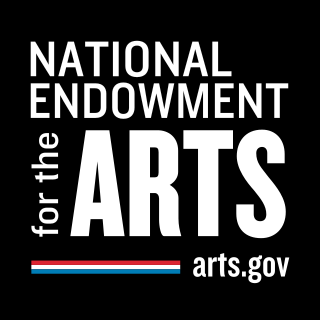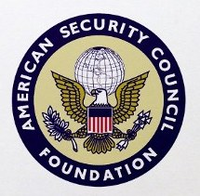
The Reagan Doctrine was stated by United States President Ronald Reagan in his State of the Union address on February 6, 1985: "We must not break faith with those who are risking their lives—on every continent from Afghanistan to Nicaragua—to defy Soviet-supported aggression and secure rights which have been ours from birth." It was a strategy implemented by the Reagan Administration to overwhelm the global influence of the Soviet Union in the late Cold War. The doctrine was a centerpiece of United States foreign policy from the early 1980s until the end of the Cold War in 1991.

The Trilateral Commission is a nongovernmental international organization aimed at fostering closer cooperation between Japan, Western Europe and North America. It was founded in July 1973 principally by American banker and philanthropist David Rockefeller, an internationalist who sought to address the challenges posed by the growing economic and political interdependence between the U.S. and its allies in North America, Western Europe, and Japan.
"Peace through strength" is a phrase that suggests that military power can help preserve peace. It has been used by many leaders from Roman Emperor Hadrian in the second century AD to former US President Ronald Reagan in the 1980s. The concept has long been associated with realpolitik. The idea has critics, with Andrew Bacevich stating, "'Peace through strength' easily enough becomes 'peace through war.'"

The Council on Foreign Relations (CFR) is an American think tank specializing in U.S. foreign policy and international relations. Founded in 1921, it is an independent and nonpartisan nonprofit organization. CFR is based in New York City, with an additional office in Washington, D.C. Its membership has included senior politicians, numerous secretaries of state, CIA directors, bankers, lawyers, professors, corporate directors and CEOs, and senior media figures.

The National Endowment for the Arts (NEA) is an independent agency of the United States federal government that offers support and funding for projects exhibiting artistic excellence. It was created in 1965 as an independent agency of the federal government by an act of the U.S. Congress, signed by President Lyndon B. Johnson on September 29, 1965. It is a sub-agency of the National Foundation on the Arts and the Humanities, along with the National Endowment for the Humanities, the Federal Council on the Arts and the Humanities, and the Institute of Museum and Library Services.

The Hoover Institution is an American public policy think tank which promotes personal and economic liberty, free enterprise, and limited government. While the institution is formally a unit of Stanford University, it maintains an independent board of overseers and relies on its own income and donations. It is widely described as conservative, although its directors have contested the idea that it is partisan.
The Committee on the Present Danger (CPD) is the name used by a succession of American anti-communist foreign policy interest groups. Throughout its four iterations—in the 1950s, the 1970s, the 2000s, and 2019—it has influenced foreign policy since the administration of Harry S. Truman. Its first iteration disbanded as its leading members joined the Dwight Eisenhower administration, leading for it to be reformed in 1976 to counter the Soviet Union during the cold war. This iteration achieved notable success during the Reagan administration. The third iteration was formed by veterans of the Cold War in 2004 in support of the war on terror. The fourth iteration, the Committee on the Present Danger: China (CPDC) returned the group to its anti-communist roots with a focus on the threat posed to the United States by the China Communist Party.

Young Americans for Freedom (YAF) is a conservative youth activism organization that was founded in 1960 as a coalition between traditional conservatives and libertarians on American college campuses. It is a 501(c)(3) nonprofit organization and the chapter affiliate of Young America's Foundation. The purposes of YAF are to advocate public policies consistent with the Sharon Statement, which was adopted by young conservatives at a meeting at the home of William F. Buckley in Sharon, Connecticut, on September 11, 1960.

Paul Henry Nitze was an American businessman and government official who served as United States Deputy Secretary of Defense, U.S. Secretary of the Navy, and Director of Policy Planning for the U.S. State Department. He is best known for being the principal author of NSC 68 and the co-founder of Team B. He helped shape U.S. Cold War defense policy over the course of numerous presidential administrations.

Winston Lord is a retired American diplomat. As Special Assistant to the National Security Advisor and then as Director of Policy Planning at the United States Department of State, Lord was a close adviser to Henry A. Kissinger and was instrumental in bringing about the renormalization of U.S.-China relations in the 1970s.

Stephen John Hadley is an American attorney and senior government official who served as the 20th United States National Security Advisor from 2005 to 2009. He served under President George W. Bush during the second term of his administration. Hadley was Deputy National Security Advisor during Bush's first term.

William Lockhart Ball III is an American former government official and political appointee. He held senior posts in the Reagan Administration, beginning as an Assistant Secretary of State under George Shultz in 1985. He moved to the White House staff in 1986 as President Reagan's chief lobbyist and liaison to Congress. After two years in that capacity, he was nominated by President Reagan and confirmed by the Senate to become the 67th Secretary of the Navy in 1988.

Eugene Victor Debs Rostow was an American legal scholar and public servant. He was Dean of Yale Law School and served as Under Secretary of State for Political Affairs under President Lyndon B. Johnson. In the 1970s Rostow was a leader of the movement against détente with Russia and in 1981, President Ronald Reagan appointed him director of the Arms Control and Disarmament Agency.
The Arlington Group was a coalition uniting the leaders of prominent Christian conservative organizations in the United States. Founded in 2002 principally through the efforts of American Family Association President Donald Wildmon and Free Congress Foundation Chairman Paul Weyrich, the group sought to establish consensus goals and strategy among its members and translate its combined constituency into an overwhelming force within the Republican Party, particularly at its highest levels. Its membership and purpose overlapped to a high degree with the Council for National Policy; but the group is much more narrowly focused, choosing to emphasize such issues as same-sex marriage, abortion, and confirmation of like-minded federal judges.
Membership in the Council on Foreign Relations comes in two types: Individual and Corporate. Individual memberships are further subdivided into two types: Life Membership and Term Membership, the latter of which is for a single period of five years and is available to those between the ages of 30 and 36 at the time of their application. Only U.S. citizens and permanent residents who have applied for U.S. citizenship are eligible. A candidate for life membership must be nominated in writing by one Council member and seconded by a minimum of three others.
The Century Foundation is a progressive think tank headquartered in New York City with an office in Washington, D.C. It was founded as a nonprofit public policy research institution on the belief that the prosperity and security of the United States depends on a mix of effective government, open democracy, and free markets. Its staff, fellows, and authors produce books, reports, papers, pamphlets, and online publications. The Foundation also hosts policy-related events and workshops for various audiences, including policy experts, journalists, college students and other academics, and the general public. It also manages several ongoing policy projects and operates a number of websites on various policy-related topics.
The Committee for a Responsible Federal Budget (CRFB) is a non-profit public policy organization based in Washington, D.C. that addresses federal budget and fiscal issues. It was founded in 1981 by former United States Representatives Robert Giaimo (D-CT) and Henry Bellmon (R-OK), and its board of directors includes former Members of Congress and directors of the Office of Management and Budget, the Congressional Budget Office and the Federal Reserve.

The Reagan era or the Age of Reagan is a periodization of recent American history used by historians and political observers to emphasize that the conservative "Reagan Revolution" led by President Ronald Reagan in domestic and foreign policy had a lasting impact. It overlaps with what political scientists call the Sixth Party System. Definitions of the Reagan era universally include the 1980s, while more extensive definitions may also include the late 1970s, the 1990s, and even the 2000s. In his 2008 book, The Age of Reagan: A History, 1974–2008, historian and journalist Sean Wilentz argues that Reagan dominated this stretch of American history in the same way that Franklin D. Roosevelt and his New Deal legacy dominated the four decades that preceded it.

The 2015 Bilderberg Conference took place between 11 and 14 June 2015 at the Interalpen-Hotel Tyrol in Telfs-Buchen, Austria. The hotel had previously held the Bilderberg Conference in 1988.

David T. Fischer is an American business executive, civic leader, and philanthropist. He was confirmed in 2019 as the United States Ambassador to Morocco and served in this role until 2021.














